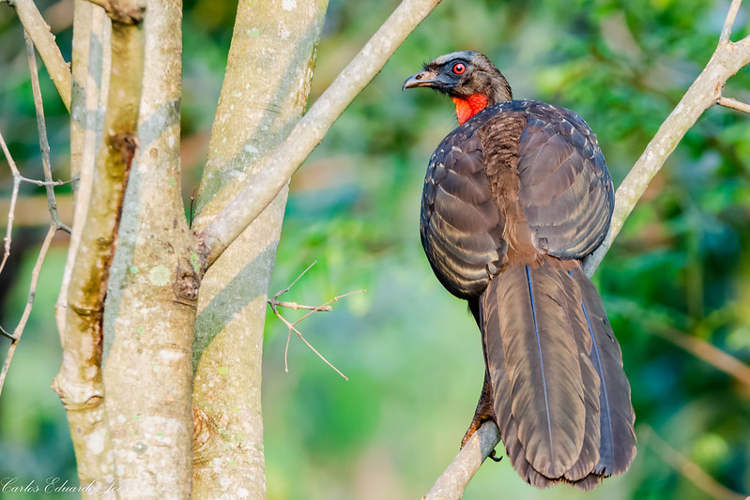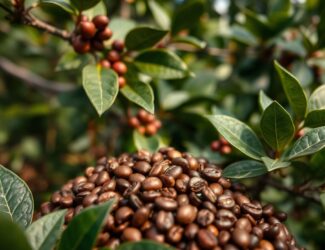
Bird’s Excrement Yields World’s Costliest Coffee: A Unique Tale of Nature’s Brew
One of the most highly-priced and coveted coffee varieties worldwide originates from the excrement of the jacu bird, a large, ebony avian resembling a turkey, which possesses a digestive system that enhances the aroma of the coffee beans.
When Henrique Sloper, proprietor of the Camocim coffee farm in Brazil’s Espirito Santo state, initially witnessed an invasion of jacu birds on his coffee plantation, he was stricken with anxiety, unaware that these birds would eventually become valuable business associates. He contacted environmental protection agencies, yet they were uncertain of a solution and proposed introducing natural predators to control the population of these sizeable birds. However, due to the difficulties associated with managing a bird as sizable as the jacu, Sloper decided to embrace the adage “if you can’t beat them, join them,” ultimately realizing that the bird invasion had fortuitously become a blessing in disguise.
For those with discerning palates in the realm of coffee, kopi luwak, the most exclusive and expensive coffee in the world, likely requires no introduction. This extraordinary coffee variety is harvested from the excrement of Asian palm civets and has gained international renown for its exquisite smoothness and captivating aroma. Sloper, being well aware of this, recognized the permanence of the jacu bird population on his farm and made the decision to create his own version of kopi luwak…
Persuading the farm workers to harvest bird feces instead of coffee beans was a challenging task, but after overcoming this obstacle and enduring two years of trial and error, Camocim Farm became the sole producer worldwide of coffee derived from the droppings of the jacu bird. And not just any coffee, but one of the most sought-after varieties on the planet.
Over time, Henrique Sloper uncovered the remarkable nature of the jacu bird’s digestive system. Although it consumed and expelled the coffee beans entirely intact, the bird’s digestion process effectively eliminated nearly all of the caffeine content in the beans, obviating the need for fermentation. Additionally, the bird exhibited an impeccable preference for coffee, exclusively consuming the ripest beans on the plantation, thereby ensuring that the coffee derived from its droppings was of unparalleled quality.
Although Brazil’s Espirito Santo state ranks as the fourth largest global producer of coffee, Camocim Farm stands alone in its utilization of jacu droppings. For nearly a decade, this unique coffee variety has been successfully marketed, now recognized as one of the most exorbitantly priced coffees available. It has gained significant popularity in countries such as France, Japan, and the United Kingdom, where prestigious retailers like Harrods sell it for 1,400 pounds ($1,700) per kilogram.



